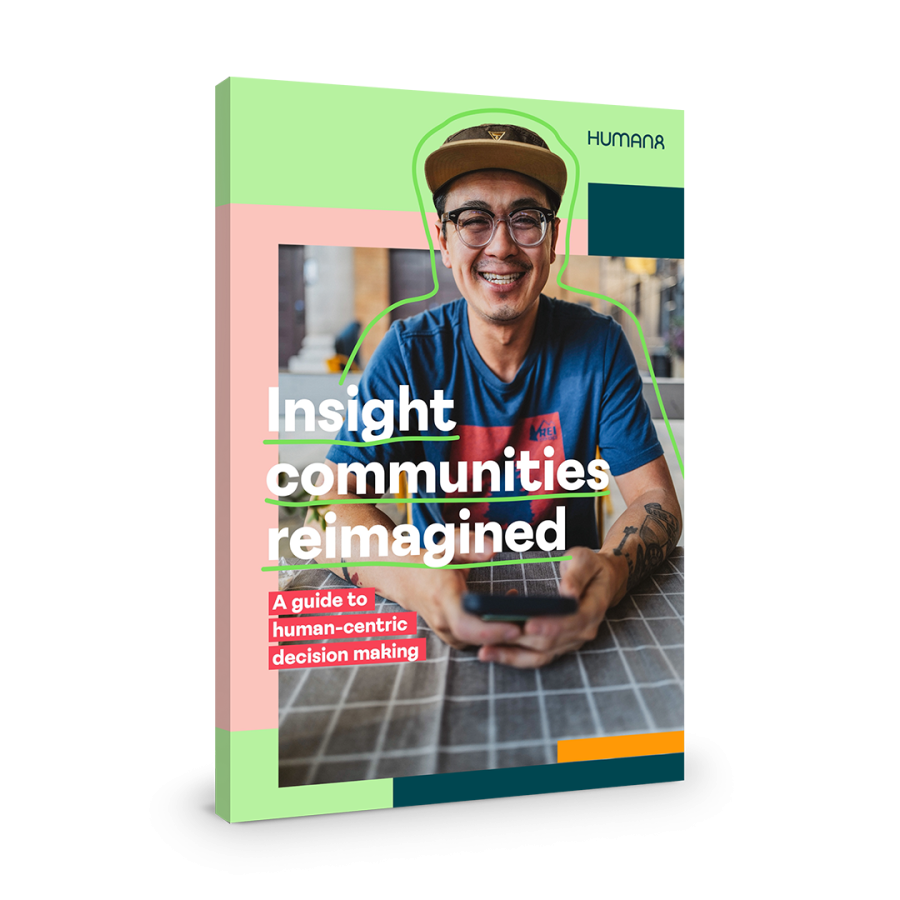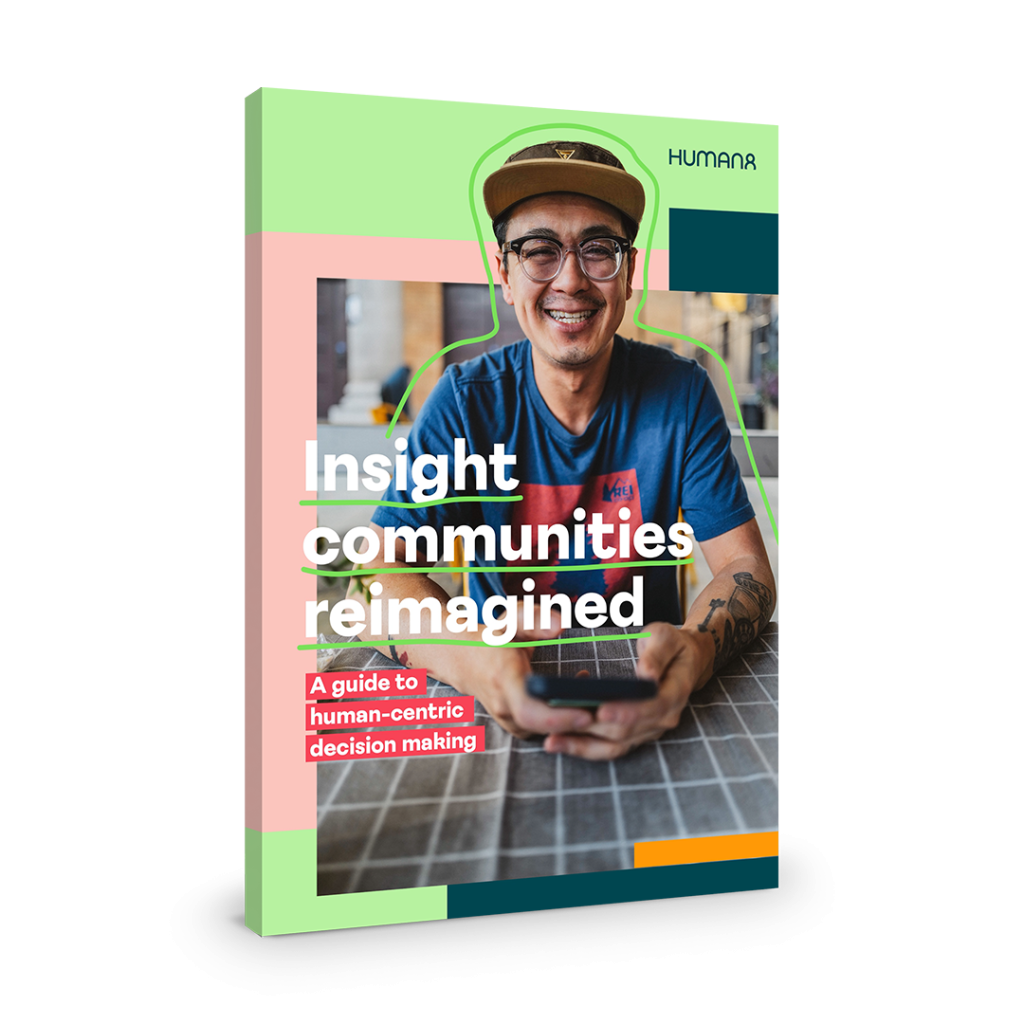Unlocking deeper brand relevance and connection through insight communities
Kurt Thompson, Senior Business Director MENA at Human8, explains how online insight communities as a human-centric research approach are crucial for brands to create relevant experiences for consumers.


Many brands often misunderstand consumers’ underlying needs. They rely on surface-level data and assumptions instead of taking the time to truly understand what motivates buyer behaviour. However, the brands that thrive are those that address real human needs rather than making assumptions.
The key for brands is to really dig deep into understanding consumers’ underlying needs and motivations. This is where online insight communities come in – they enable brands to foster sustained engagements with consumers, co-create with audiences, and uncover growth opportunities grounded in authentic human truths.
Traditional market research tools such as simple surveys, analyzing web traffic, and tracking sales, while useful, fall short in many areas. For instance, sales data can tell you what’s being bought, but not why. Web analytics show you where people click, but not what they’re thinking. Traditional surveys are far from giving a full picture. These methods also fail to keep up with the changing priorities of consumers. A study by Human8* shows 61% of people say their priorities keep changing. It’s impossible for traditional methods to keep pace with this shift.
The power of online insight communities
Insight Communities solves these issues as it helps uncover deeper truths about consumer motivations and needs. It helps consumers to feel seen, heard and understood. It helps go deeper by employing empathy-based techniques that uncover why consumers make certain decisions.
An online insight community is a dedicated, closed online space that brings together anywhere from 30 to several hundred individuals with shared interests or traits. It emphasizes connection and collaboration, is overseen by a dedicated moderator, and functions as a central point for a broad range of research activities. At Human8, we use a 3P’s approach – people, perspectives and partnership. It combines recruiting passionate diverse people, embracing multiple perspectives, and building collaborative partnerships between consumers and brands seeking to achieve deeper mutual understanding.
One example of the successful utilization of online insight communities is the way we assisted the multinational conglomerate Philips in making a fundamental shift in mindset — from being product-centric to becoming people-centric. This shift was crucial as the company transformed over the past decade, moving away from being one of the largest electronics companies to concentrating on health technology. The process started with developing a ‘Continuous Learning’ approach which prioritised human understanding at every step of the innovation journey. By engaging stakeholders through numerous bite-sized interactions and leveraging multiple learning loops, Philips has been able to observe, reflect, and make improvements continuously. The ‘My Living Square’ online community was the backbone of Phillip’s Continuous Learning practice. Over 3,500 participants from seven markets enabled its teams to immerse themselves in the lives of consumers and co-create with them. This community-based approach ensured that every innovation was grounded in real human needs and experiences. The impact of this shift towards a people-centric mindset is evident in the results. By 2022, Philips’ Personal Health segment accounted for 20% of revenue and had a positive impact on 30% of the lives reached by Philips — over 535 million lives were improved. This significant achievement highlights the effectiveness of moving away from a purely product-driven focus and towards a model that places human needs at the centre of innovation and messaging.
For the development of the BBC’s game Nightfall, we benefited from the insights gathered from young gamers within the ‘Nightfall Hub’ online community. Over a 12-week period, we delved into their gaming habits and experiences with Nightfall, collecting feedback on various aspects of the game. This approach, in contrast to traditional lab-based research, offered a more authentic understanding of the product’s gaming experience.
Similarly, by leveraging the power of online communities, we supported a confectionery client in launching a new product in China. By providing community members with the product and observing their interaction over three months, we gained insights into their evolving behaviours and habits, how they engaged with the product, and their actions upon completing it.
Bloomingdale’s approach to developing its new beauty mall counter also exemplifies the power of online communities. Through a seven-month iterative collaboration with millennials, Bloomingdale’s stayed attuned to consumer preferences and expectations in beauty shopping. This process of continuous feedback and optimization, including offline shop visits, culminated in the launch of the Glowhaus boutique—a concept markedly distinct from traditional department shop beauty counters.
Addressing real consumer needs
The brands that will thrive are those that address real human needs rather than making assumptions. A human-centric approach grounded in cultural insights, immersive consumer understanding, and empathetic listening is crucial for brands to create relevant experiences that consumers genuinely value.
By taking the time to uncover what motivates consumers, their frictions and needs, and gaps that exist in the market, brands can innovate solutions that solve real problems in people’s lives. This type of insight cannot be gathered through surface-level data – it requires an emotional investment and commitment to the consumer perspective.
Brands like Philips and BBC, through leveraging online communities for sustained engagements, have been able to not only capture consumer feedback but co-create with audiences. This fosters solutions that consumers actively champion rather than easily forget.
The marketplace will only grow more noisy and crowded. But brands willing to model themselves around human-centricity over product-centricity will uncover growth opportunities.
* Human8’s proprietary global human understanding survey among 18,590 respondents in Asia, Australia, Europe, the US and South Africa executed January-December 2022.
EBOOK

